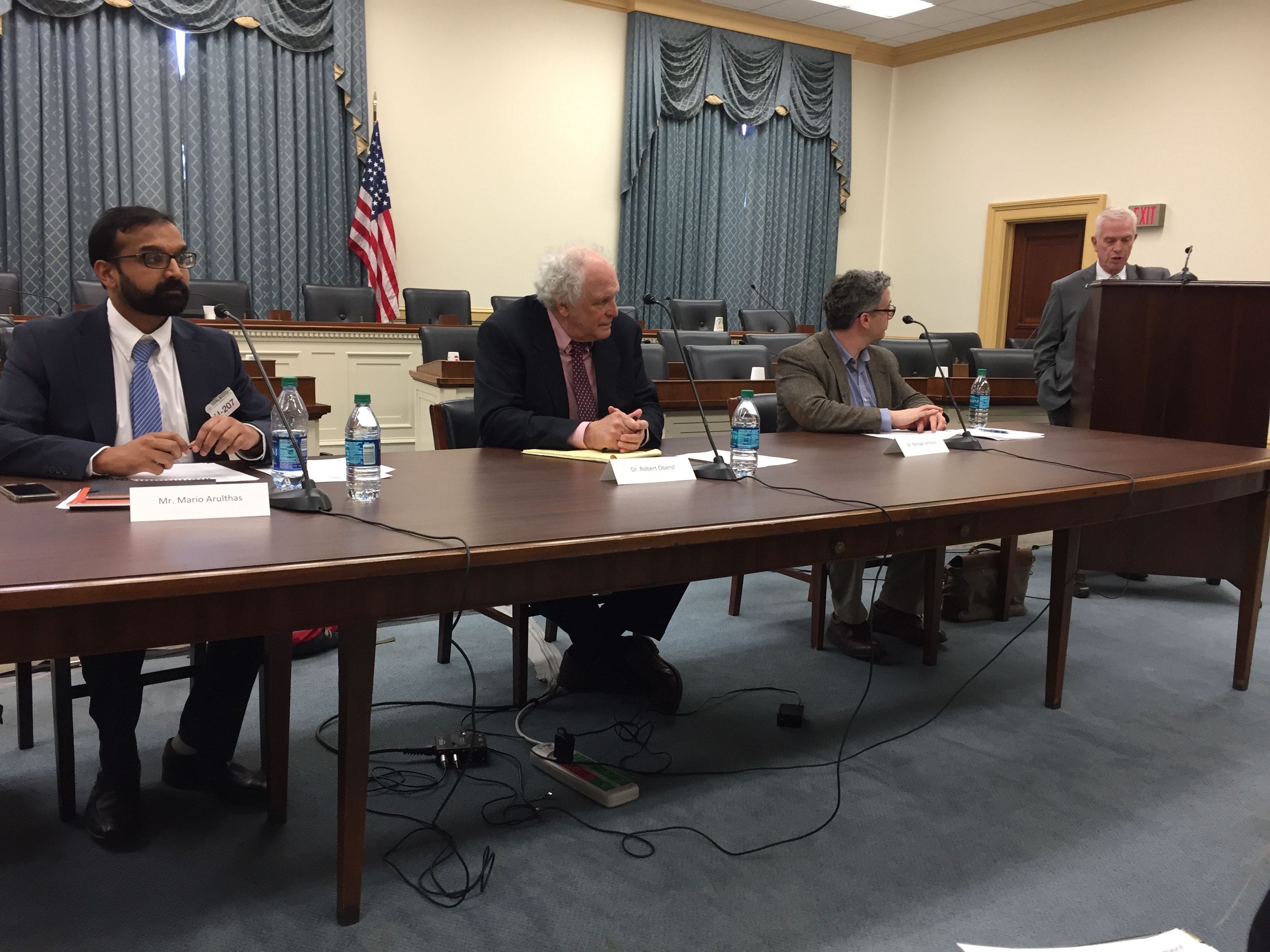 |
A panel event by the Congressional Caucus on Religious and Ethnic Freedom in Sri Lanka saw a lively discussion on the link between Sinhala Buddhism and extremist violence in Washington DC last week.
The panel, moderated by the co-chair of the caucus Representative Bill Johnson, saw contributions from PEARL's Advocacy Director Mario Arulthas, Associate Professor at Youngtown University Dr Michael Jerryson and Dr Robert Oberst, professor at Nebraska Weselyan University.
Mr Arulthas spoke about the historic role of Sinhala Buddhist ideology in the oppression of Tamils and Muslims and how the recent incidents in Kandy and Amparai were a continuation of a decade-old pattern of violence, predating the armed conflict against Tamil resistance movements. He explained that Sinhala Buddhist chauvinism was embedded in the construction of the Sri Lankan state and the understanding of Sri Lankan identity since independence. In order to be Sri Lankan, inhabitants of the island either have to be Sinhala Buddhist or in the case of Tamils and Muslims, accept Sinhala Buddhist hegemony - this remained the root of the continuing conflict in Sri Lanka, he further said.
Dr Jerryson spoke in-depth about Buddhism and violence, drawing on Sri Lanka and Burma. He detailed the Sinhala holy scriptues, the Mahavamsa, and its role in shaping Sinhala understanding of Sri Lanka and the belief that the island belongs to the Sinhalese. He pointed out that Burmese Buddhist extremists had even used the Mahavamsa as justification for their supremacist rhetoric. Dr Oberst spoke about the political difficulty in implementing reforms, due to the Sinhala Buddhist nature of the state but also how the political manouverings of the SLFP and the UNP made such reforms highly unlikely.
Members of the Sri Lankan diaspora also attended the event - including officials from the embassy according to sources in DC. During the Q&A, some of the Sri Lankans heatedly accused the panelists of lying and said that Tamils were never discriminated against on the island. Claiming the panellists were trying to create divisions amongst people in Sri Lanka, they said that people wanted to move on and reconcile.
